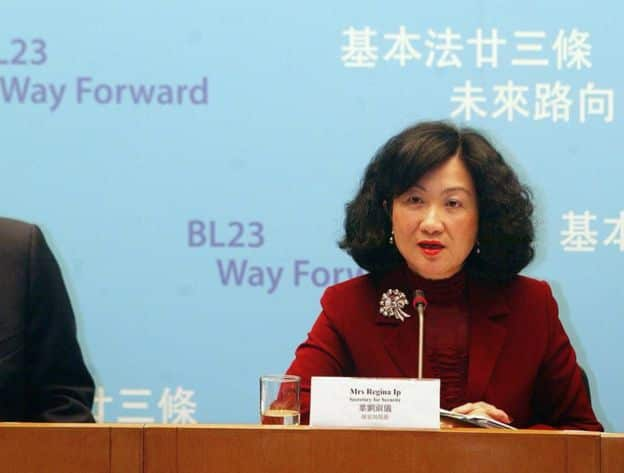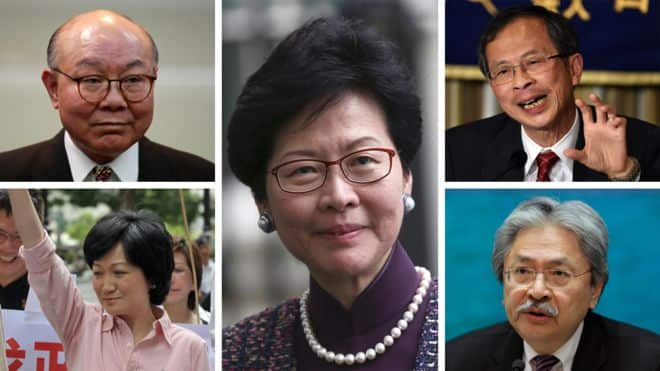The race for chief executive was thrown open when unpopular hardline leader Leung Chun-ying declared last week he would not seek reelection after a term marked by political crises and anti-Beijing protests.

Since then, finance secretary John Tsang, considered more moderate, has resigned from the government and is widely expected to declare his leadership bid.
But he has been beaten to it by Regina Ip, who Thursday announced her "Win Back Hong Kong" campaign.
Instrumental in the government's failed 2003 attempt to push through a hugely unpopular anti-subversion law, Article 23, Ip is a divisive figure seen by opponents as a China-friendly hardliner like Leung.
She said Thursday she still wants to implement the controversial legislation at the same time as striving for social harmony in Hong Kong.
The deputy of Ip's New People's Party, Louis Shih, said Ip would be the "iron lady" that Hong Kong needs as she announced her candidacy at the city's harbourfront convention centre.
Ip said she was willing to work with non-establishment parties "as long as they faithfully uphold national sovereignty, territorial integrity and the Basic Law (Hong Kong's constitution)".
Those remarks come as the government cracks down on lawmakers calling for independence or self-determination for semi-autonomous Hong Kong, frustrated by a lack of democratic reform and Beijing interference.
Two legislators have been banned from taking up their seats and four more face disqualification after an intervention from Beijing.
Pro-democracy lawmaker Claudia Mo said Ip would be "anxious to show Beijing that she's loyal".
Civic Party lawmaker Alvin Yeung described Ip as a symbol of hardline politics.
Ip resigned from government in 2003 after the proposed anti-subversion law brought half a million protesters onto the streets as critics said it infringed human rights.

